I’m writing. Not songs, for the time being, but pages and pages of stories. True stories: some of the ones I’ve been telling in songs for years are now finding a new place as I continue to try and understand and share the experiences, and some I haven’t told before.
As it stands, I’m writing a book about loss. And as I write and research, I’ve been reading many other books about grief and also memoir in general.
This week, a column I recorded with Shelagh Rogers for The Next Chapter aired on CBC about the books I’ve turned to.
You can listen to that interview here.
But let me explain.
The first three — H is for Hawk by Helen Macdonald, Certainty by Madeleine Thien, and Hot, Wet, & Shaking by Kaleigh Trace are explained in the interview.
But in case you skip the audio, the inclusion of the third needs elaboration because at a glance you are saying, “that’s not a book about loss, that’s a book about sex,” and well YES you are right.
I read Hot, Wet, & Shaking because I was looking at forms of memoir; I read it because it’s written by a disabled woman and as a disabled woman myself HOLY SMOKES is it hard to find our voices represented, much less on the subject of disability AND sex (gasp).
And there are ways that I have equated disability to grief — the space it can take in my days and the planning around it. So this book made it’s way on to the list for that reason as well.
AND Trace’s book empowers difference and different bodies. Which is pretty much everybody/every body. I felt really good about being in my skin after I read the book. You probably will, too.
The Boy in the Moon by Ian Brown is a book I read at my son Ford’s bedside during the months he was in hospital. Brown and his family spend time navigating the medical system for their disabled son, and I felt comfort is seeing that part of my life reflected. It may not be a book about loss, exactly, but it is, to me, a book about adjustment, acceptance, and parenting.
When speaking about Hawk during the interview, I mention the inspiration I’ve found in books about the natural world. Trauma Farm by Brian Brett is included in this list as one of my favourite examples of that. I find the descriptions of life and death in the animal world refreshingly frank; I relate to the visceral presence of breath, blood, and bodies.
Brett is also very funny.
(I stayed at Trauma Farm, the actual place on Salt Spring Island, while on tour with C.R. Avery in 2012, before I read the book, so I had the delightful insight of knowing the sound of Brett’s voice as I read his words — not required to enjoy the book, I’m sure, but look up some interviews with the guy, he has warmth and character.)
The Year of Magical Thinking by Joan Didion is like the grief classic. I read it just a couple month’s after my son Emmett died and it was the first truly understanding voice I heard in those months. Her experience of loss, in this book, is that of her husband. It didn’t matter the type of loss: the blurriness of time, the in/visibility of the bereaved, all of it was “yes, yes, yes, exactly that, thank you for saying so” for me.
All My Puny Sorrows by Miriam Toews. Well, goodness. This book ties for first with Magical Thinking as far as Books That Best Articulate Grief and Chronic Trauma for me. It is full of dark humour, as a life filled with loss often is; it’s beautiful and it aches.
Sorrows, like Certainty on this list, is fiction. But I feel little difference between non- and fiction on the subject, and these two are books that grew out of lived experience; both are full of the author’s own heart break. What feels real is real in these stories.
Pema Chodrin’s When Things Fall Apart is a good, heart-opening approach to suffereing, though I must admit when I first read it, the hardships she was talking about didn’t seem hard enough. This book is perfect for ordinary heartache — not easy heartache mind you, but the kind we’re surrounded by. The book vibrates with compassion.
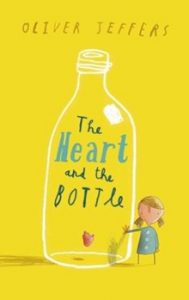 If you have, in your thoughts or on paper, written letters to a loved one, perhaps with the things you wish you could have said in person, Paula by Isabel Allende will reach you.
If you have, in your thoughts or on paper, written letters to a loved one, perhaps with the things you wish you could have said in person, Paula by Isabel Allende will reach you.
Lastly, the kid’s book The Heart and the Bottle by Oliver Jeffers is on the list as sometimes pictures and just a few words is all you need. There are many kid’s books about loss, and a lot of them bad. This is one of my favourites, as far as how we carry heartache forward.
And that’s the 10 that came to mind when I was asked to put together a list. I am always looking for more friends in books, and I hope you may find a friend in at least one of these, and if not, at least, a little joy or comfort. We can all always use a little more of that.
xoc
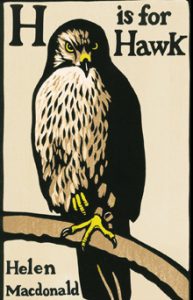
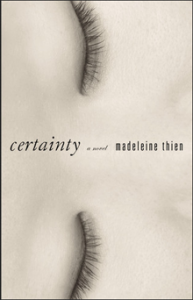
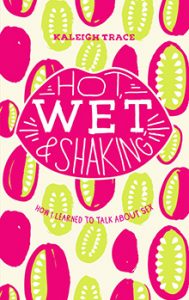
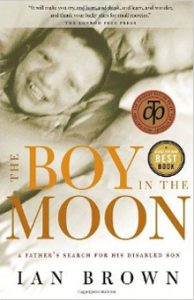
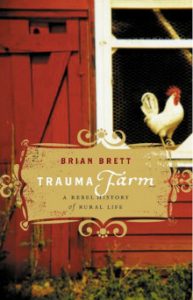
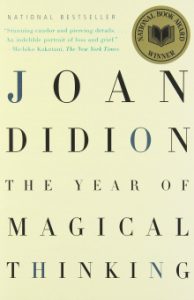
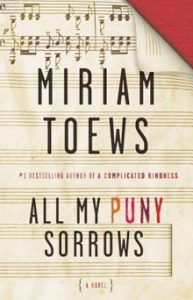
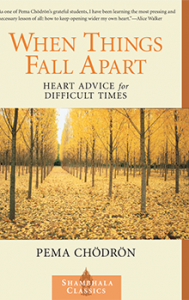
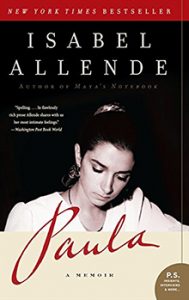
Hey Christa. I loved H is for Hawk too. If you’re up for recommendations from the heartbroken and grief-stricken listeners out here who are feeling what you feel, I would add “It’s Okay to Laugh/Crying is ok too” by Nora McInerney Purmort, whose husband died of a brain tumour the same time as she miscarried their baby and her father died in the same year. Also New Yorker magazine writer Ariel Levy’s powerful new book, “The Rules Do Not Apply” and a Canadian voice, Toronto’s own Camilla Gibb, who published a memoir called “This Is Happy” that is honest, raw, poignant, wrenching and beautiful. I wish you peace and strength. Keep singing and writing. Suzanne
Suzanne, I am always glad for more recommendations, especially from my fellow heartbrokens. Thanks so much for listening and letting me know you feel it too, that means the world to me. I will now order these through my library! cc